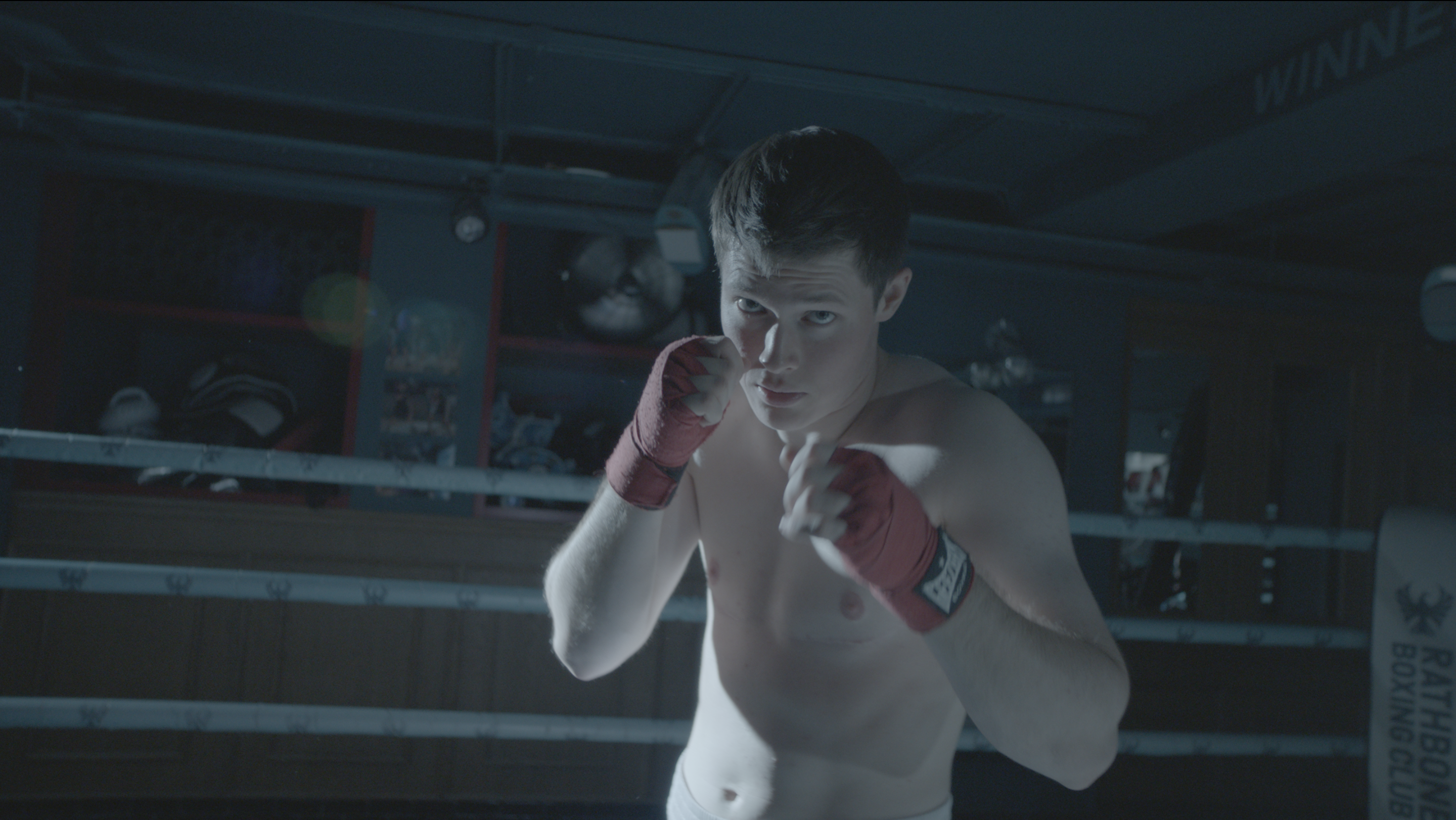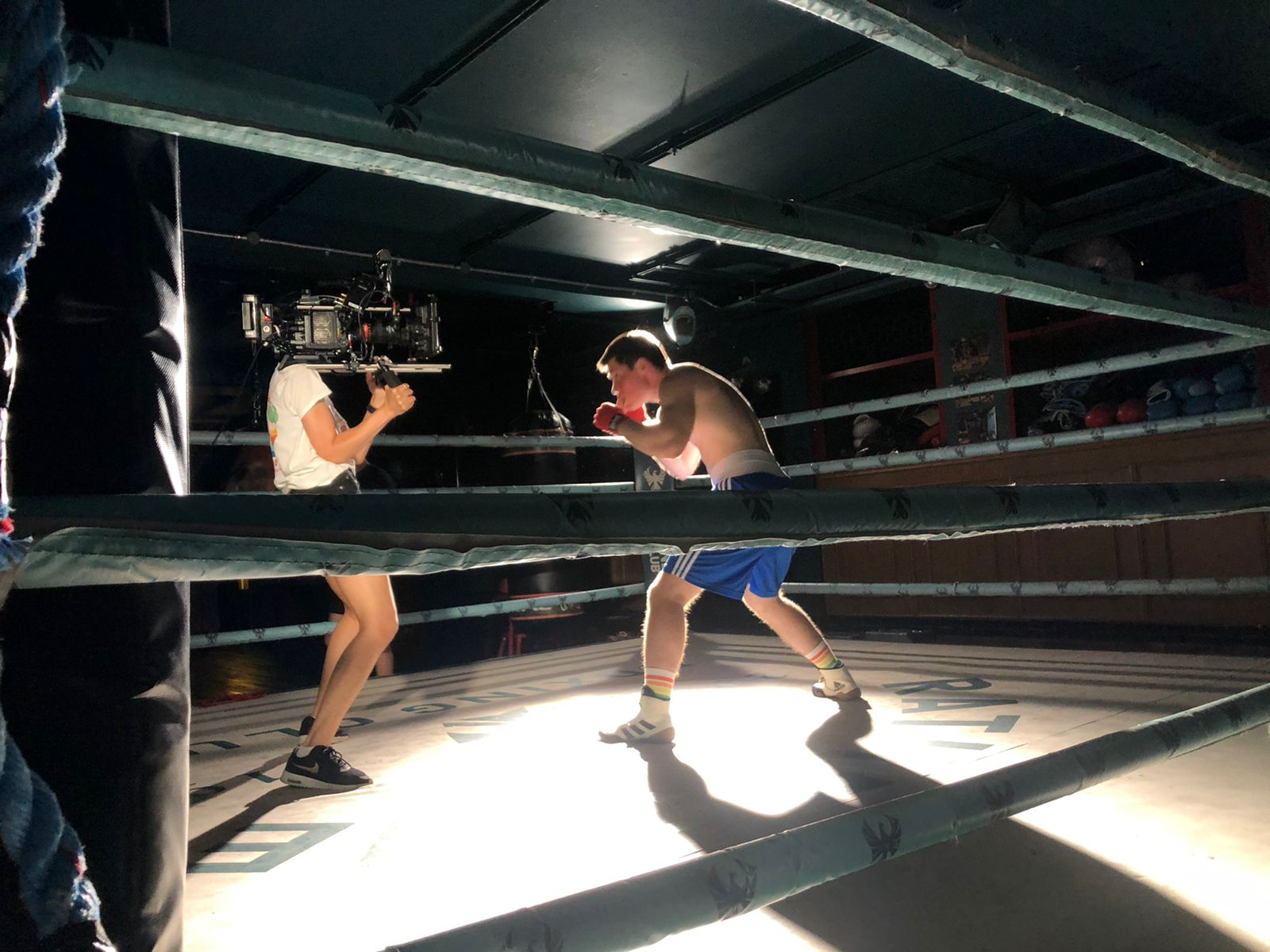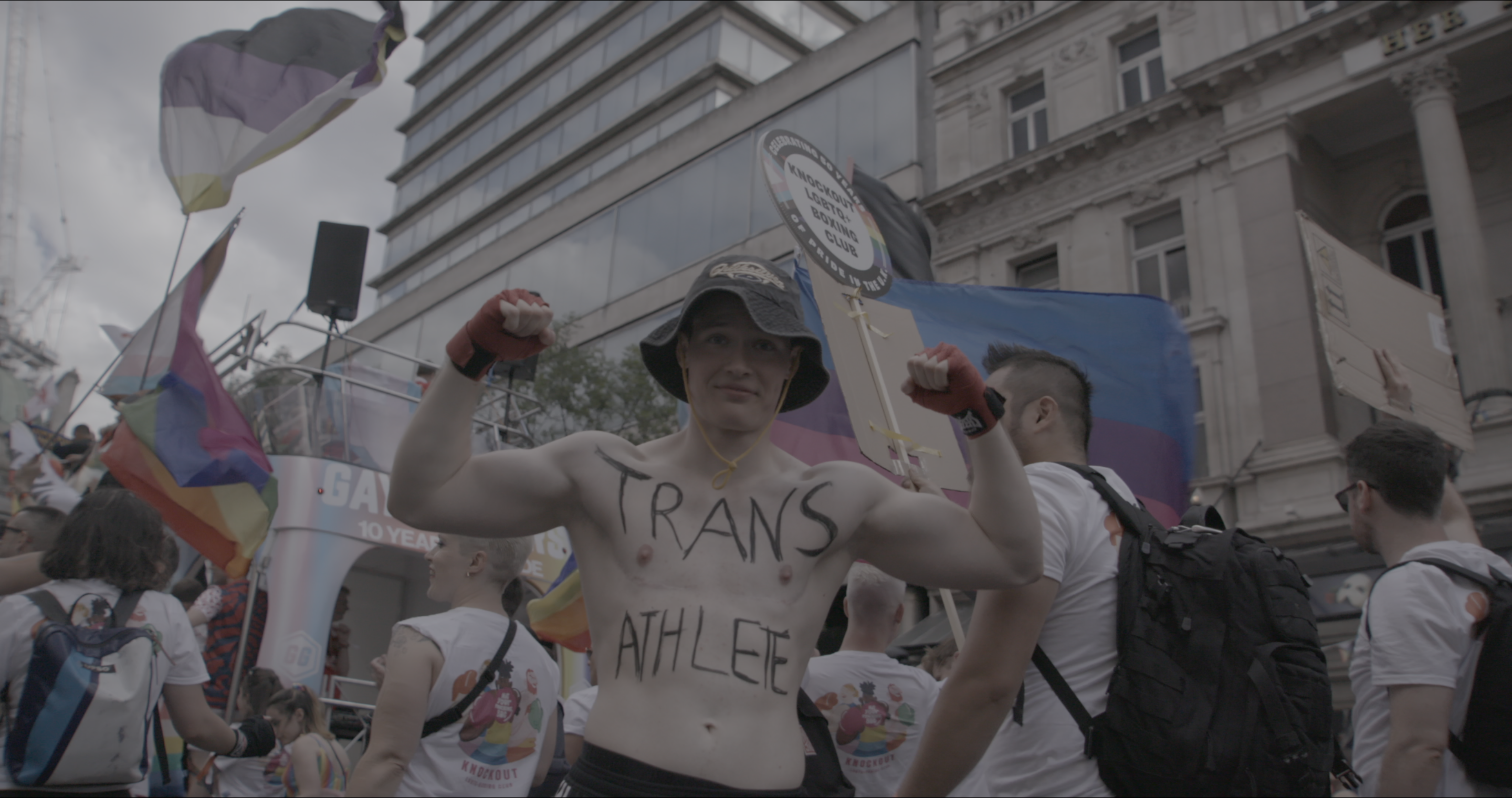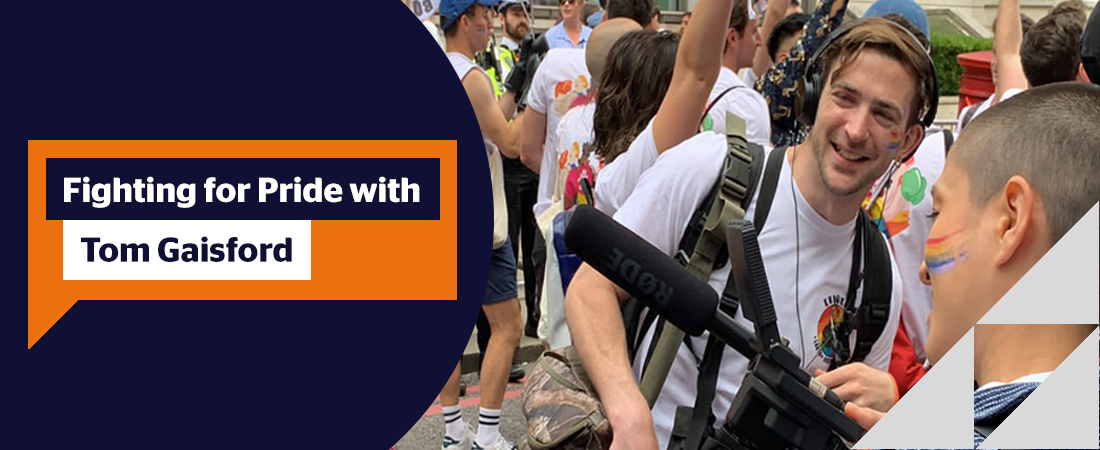Fighting for Pride with Tom Gaisford
“Pride’s a protest. There’s a lot of people who don’t realise that LGBTQ+ people don’t have it all.”
This year, our 2022 Diverse Film Fund: Queer Lives Today filmmakers were asked to share a story about this often-underrepresented community. Today, we’re spotlighting Tom Gaisford, and his foray into the underbelly of LGBTQ+ representation in boxing. Tom, a former Assistant Producer, is making his directing debut. He has worked with Netflix, National Geographic, BBC, and Disney Plus+, among others. 
His film, Come Out Fighting, follows Jill, a gay trans man, as he prepares mentally and physically to step into the ring for his next boxing bout. He finds strength in an emerging LGBTQ+ fight community to square up to old attitudes and challenge a current ban on trans boxers. This knockout documentary provides a ringside seat to the intimate journey of a trans athlete at a time when trans access to sport makes headlines worldwide.
Together TV sat down with Tom to discuss how his industry background influenced his work, taking on directing for the first time, and the beauty of documentaries.
This interview has been edited for clarity and length.
Together TV: Will you walk us through the process chronologically?
Tom Gaisford: I've sat on the idea for a while and was hunting around for funding. I got sent [the Diverse Film Fund] by another filmmaking friend. I pretty much paused everything else in my life and started writing a proposal. I was amazed when I got shortlisted. After I’d done the interview I got invited back for another one on Zoom. I thought I was going to have to clarify, but she said I had it and I think I screamed. I had to duck out of the way so I could emote properly.
TTV: Why is this such a big deal for you in terms of where you are with your career?
TG: This fund represents an opportunity that's really difficult to get. People can be conservative about giving you opportunities. They want someone who's proven. It was a golden opportunity. I'd actually quit my previous job to try and make this film, and then the film fund actually made it possible.
TTV: Just for people to put it in context, what is your day-to-day job?
TG: I was an assistant producer on documentaries and specials, factual programs for broadcast television and streamers like Netflix and the BBC and Channel Four. You’re a smaller cog in a bigger machine.
TTV: What is it about documentaries that you like so much?
TG: What I love about documentaries is also the difficult bit of documentaries. Life happens, time flows, and you’re essentially trying to catch reality as it happens. Sound is pouring through your fingers and you've got to try and pick out the bits that are going to make a cohesive narrative. It's an intellectual challenge. That feeling of being in that privileged position where someone is trusting you to tell their story is a feeling that I don't think gets old.
TTV: Is there anything that surprised you during the making of this film?
TG: I was surprised by how candid people were willing to be. My initial plan changed – the fight I was following got cancelled, which prompted a sort of a narrative that's non chronological. It made the film better because I had to think of the wider story. I think producing and directing was a lot. Learning to ask for help when you need it can be quite difficult. If you are going to produce and direct at the same time, give yourself space to put down the sort of logistical tools for a second and think creatively.
TTV: Do you have any advice for how to give it the best that you've got, even if you’re wearing a lot of hats or spread across projects?
TG: For people starting out, if you're going to wear a few different hats, you've got to look at why you're doing that. If you’re a bit shy about your idea or it's not fully formed, don't let that stop you from reaching out. Even if the budget doesn't spread, there's a lot of people who will give you advice. If production does continue and you start having a few different jobs, make sure to look out for yourself. Split things up, have time to yourself where you put the project away and relax.
TTV: How did you manage? 
TG: I think there's a tendency when you're wearing lots of different hats to let it take over your life. Part of you wants it to take over your life because you're so invested. You don't really want to put [your ideas] into the sunlight of other people's opinions. But when I did work with colleagues, it felt like [the idea] had momentum, and you get to bring in other people's expertise and talents. It makes you extraordinarily appreciative.
TTV: How does it feel now to be on the other side of it?
TG: When you finish a film, you expect there to be this cut off and sort of a sudden woo, champagne bottles popping. But it's not just a chop. You're saying a number of goodbyes to it. You’re saying goodbye to editorial control, and maybe you’re drifting further away from the contributors and crew that you've been spending lots of time with. It's definitely satisfying when there's a film that exists that didn't exist before.
TTV: Do you have any advice for filmmakers who might have a passion for documentary, but maybe don't feel like they can be a documentary filmmaker?
TG: I think filmmakers are the sort of people who get lost. The only difference is they speak their things into existence. If you can sum up your idea in a few sentences over a drink and your friends are interested in it, it’s probably quite a good idea. The main thing is just to have self-belief, because you do need that fundamentally to put something out in the world, but also to be ready for people to give you feedback and take it on board because it only strengthens you.
Come Out Fighting premieres Monday, 14th November on Together TV. You will be able to watch it on Freeview 83 and on +1 Channel 92, Sky 170, Virgin 269, and Freesat 164.





























